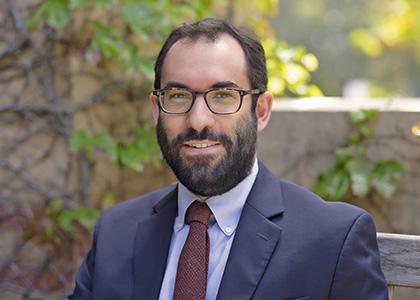The Williams Institute's 2024 NYC Fall Salon will take place on Thursday, September 12 from 6:00-8:30 PM at the Meta office in Hudson Yards.
We invite you to join our discussion on the current state of LGBTQ+ law and policy and what’s at stake in the upcoming November election and beyond.For tickets to our 2024 NYC Fall Salon, please visit: https://bit.ly/NYCFallSalon24RSVP ends on September 4, 2024.
For more information, please contact Williamsdev@law.ucla.edu.

With deep expertise in the law of prisoners’ rights, UCLA School of Law assistant professor Aaron Littman is poised to engage in further cutting-edge research with the support of a prestigious fellowship that goes to the most promising pre-tenure faculty members across all fields of study, throughout University of California system.